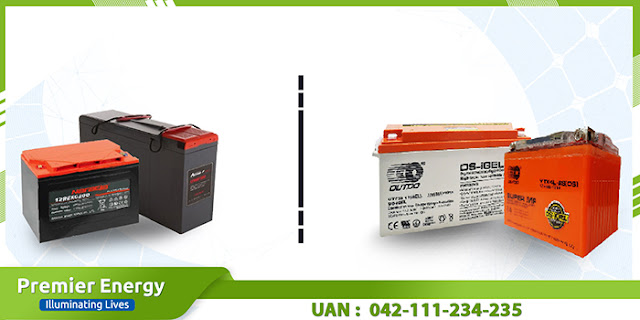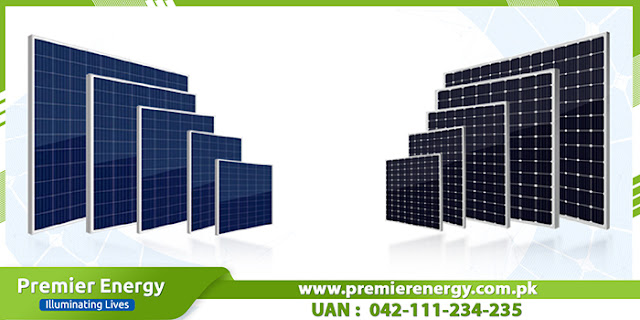How Long Do Solar Batteries Last?
There are two different ways to address this inquiry, and the first is to decide how long a solar battery can power your home. Much of the time, a fully energized battery can run your home for the time being the point at which your solar panels are not creating energy. To make a more accurate estimation, you'll need to know a couple of factors, including how much energy your family burns-through in a given day, what is the limit and power rating for your solar battery, and whether you are associated with the electricity grid or not. A typical family will utilize approximately 30 kilowatt-hours (kWh) of energy each day, and a regular solar battery can convey exactly 10 kWh at best. Hence a straightforward answer would be, on the off chance that you bought three Solar Batteries, you could run your home for a whole day with only battery backup.
In actuality, the appropriate response is more confounded than that. You will likewise produce power with your solar panel system during the day, which will offer substantial power for some 6-7 hours of the day during optimum daylight hours. On the opposite end, most batteries can't run at the highest limit and by and large top at 90% (as clarified previously). Therefore, your 10 kWh battery probably has a practical limit of 9 kWh. Eventually, on the off chance that you are pairing your battery with a solar PV system, a couple of batteries can give adequate storage capability during the evening when your panels are not producing any electricity. Nonetheless, without a sustainable power arrangement, you may require 3 batteries or more to power your entire home for 24 hours. Furthermore, if you are installing an Off-Grid Solar System to cut off from the electric grid, you ought to introduce a couple of days of backup to cater to the days where you may have a shady climate.
Sun Oriented Battery Life Expectancy
The overall limit for a solar
battery's productive life expectancy is somewhere in the range of 5 and 15
years. On the off chance that you introduce a solar battery today, you will
probably have to replace it at least once to integrate it with the 25 years of
long-term life expectancy of your solar system. Notwithstanding, similarly as
the life expectancy of Solar Panels
has expanded altogether in the previous decade, it is reasonable that solar
batteries' life expectancy will increase in the same way as the rest of the
market for energy storage develops.
Legitimate upkeep can likewise
significantly affect your solar battery's life expectancy. Temperature
essentially affects solar batteries, so shielding your battery from freezing or
boiling temperatures can expand its operation life. When a PV battery dips
under -1° C, it will require more voltage to arrive at the most extreme charge.
When that same battery transcends the 32° C edge, it will get overheated and
need a decrease in charge. To deal with this issue, many leading battery
manufacturers, similar to Tesla, give temperature control as a product feature.
Notwithstanding, if the battery that you purchase doesn't, you should consider
buying different systems like earth-covered nooks. Quality subsistence efforts
can affect how long your solar battery will last.
Elements That Affect Home Solar Battery Life
Sun Based Battery Type:
Solar batteries are made with one
of three diverse substance creations: lead corrosive, lithium-ion, or
saltwater. Of the three sorts, lithium-ion batteries (otherwise called li-ion
batteries) are the most well-known source of energy storage for a home solar
system.
Lead-Acid Batteries:
Lead-acid batteries have been
utilized in off-grid solar energy systems for quite a long time and keeping in
mind that they're one of the most affordable alternatives available, lead-acid
batteries have a more limited life expectancy, and lower profundity of release
(DoD) contrasted with lithium-ion batteries. Something contrary to charging, a
battery's DoD mirrors the measure of force the battery can release
comparatively with its full kilowatt-hours (kWh) capacity.
Lithium-Ion Batteries:
With regards to home solar energy storage systems, lithium-ion batteries are the best quality level since they're lighter, more minimal, and have an increased life expectancy and a higher DoD than lead-acid batteries. That, however, advancements in technology have reduced the cost of lithium-ion batteries by 85%, making solar energy systems with battery back-up more attainable. It also means that it is easier to get a Hybrid Solar System now than ever before.
Saltwater Batteries:
Dissimilar to lead-acid and
lithium-ion batteries, saltwater batteries don't contain weighty metals and
rather depend on saltwater electrolytes. This makes saltwater batteries all the
more harmless to the ecosystem and permits them to be handily reused. In any case,
as another innovation, saltwater batteries remain to some degree untested. If
you're hoping to amplify your solar energy potential, lithium-ion batteries
will offer the most solid wellspring of force.
Solar Battery Usage:
The future of a solar battery is
for the most part controlled by its use cycles. Fortunately, most solar
batteries are by and large profound cycle batteries, which permits them to
release up to 80% of their stored energy before re-charging.
Battery Temperature:
Depending upon where you live,
where you install your battery storage system at home can have a tremendous
effect. This is because your battery unit ought to be kept at an ideal
temperature to enhance its life and proficiency. For instance, if you live in
zones with calm/gentle temperatures, your battery could be introduced outside.
While, in areas with severe temperatures, your battery will perform ideally
just if it's introduced in your carport or basement.
Nature of Products
For your inverter battery to
last, the nature of the products utilized should be standard. These items
incorporate panels, connectors, charge regulators, and other equipment. The
country of assembling a battery doesn't decide its life expectancy. One thing
you should note is that each battery has a life cycle which decides the life
expectancy of the battery.
Nature of Design
Before the establishment of your
solar battery system, an appropriate energy audit needs to be taken by your
installer. This assists with understanding what you presently consume, how much
the installer can help you save from the new establishment, and the
compensation time frame. For the most extreme yield, guarantee you get an
itemized energy review.
Depth of Discharge (DoD)
The battery life or life
expectancy is reliant on how profound a battery is cycled each time. The depth
of discharge (DoD) just alludes to how much a battery is released comparable to
its complete limit. A battery 'cycle' is one finished release and re-energize.
A battery finishes a cycle life when it releases 100%. Subsequently, if you
release your battery to half and re-energize, it has finished half cycle.
Releasing it to half again and re-energizing it again brings about one complete
cycle — 100%. It will improve battery life to use it in partial cycles.
Sulfation
Sulfation is the age or change of
released lead sulfate in the plates of a battery that opposes ordinary
re-charge. A few reasons for sulfation include battery being cycled in a
fractional condition of charge, i.e. neither completely charged nor discharged
and not charging your battery immediately after it is completely discharged.
Get in Touch
with a solar consultant and they will help you decide the best solar battery
for you.




Comments
Post a Comment